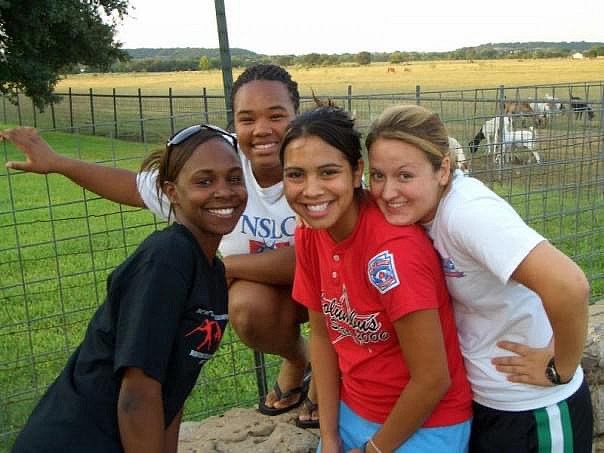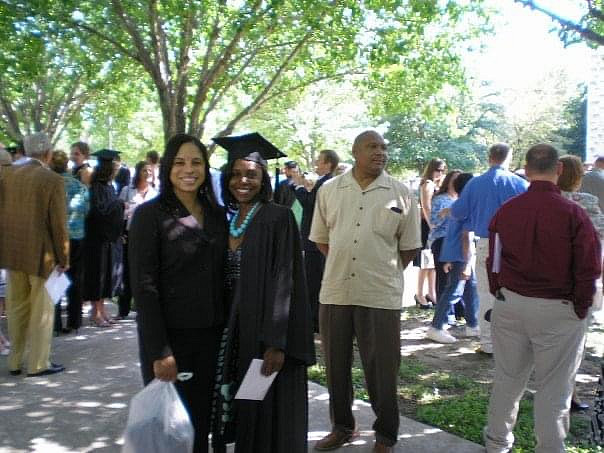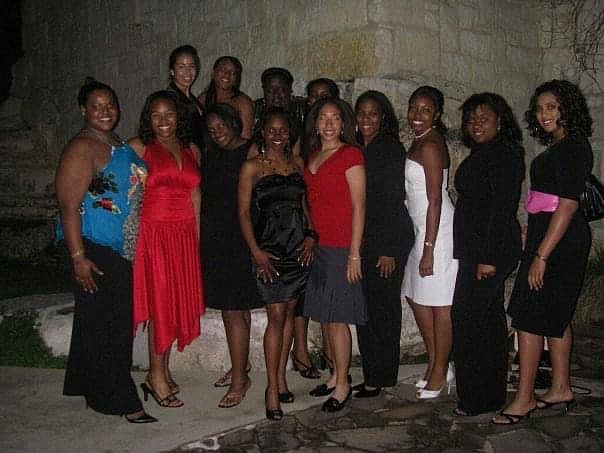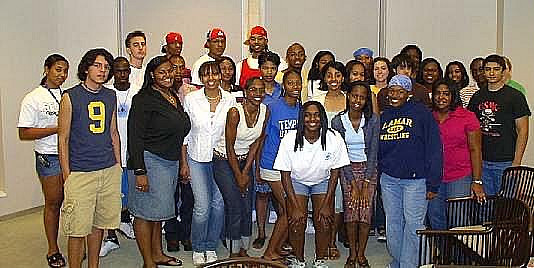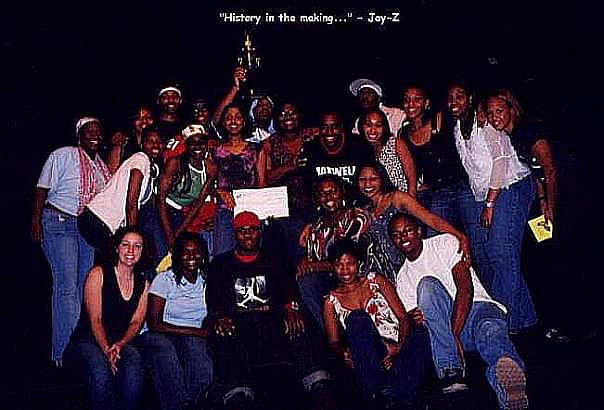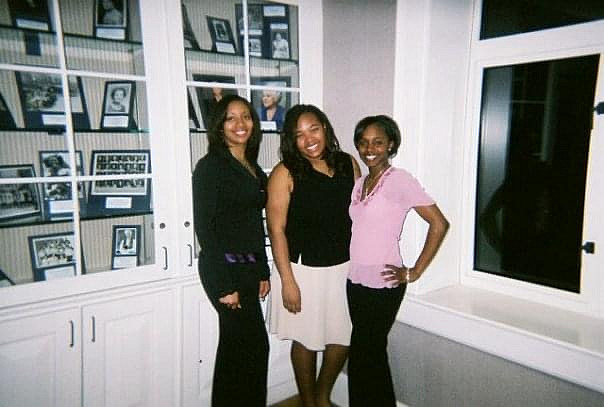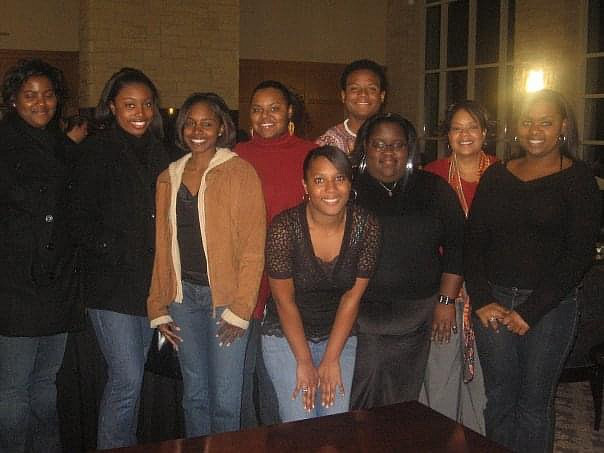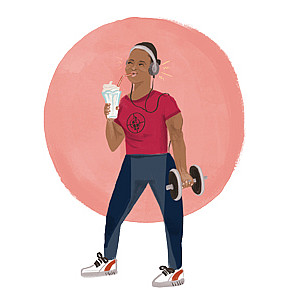News
Pirate Confidential: Terrenee Knight ’07 Reflects on Her Southwestern Experience
February 21, 2022
February 21, 2022
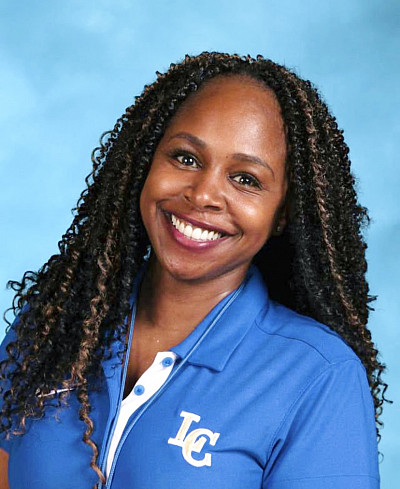
Knight recalls that many of the Black students then on campus were student athletes. She found her way to Southwestern because of track. She attended Naamen Forest High School in Garland, Texas, and the husband of one of the athletic coordinators was a Southwestern alumnus. Knight says, “Our coach was really big on us learning about the schools along the South IH35 corridor. I felt at home one of those times we stopped and walked around campus,” she said.
When she arrived on campus during move-in, she immediately saw two other Black students in Kurth Hall. “We automatically saw each other and said, ‘Hey you look like me.’” They became fast friends, then soon bonded with other Black students on campus, especially after getting involved with EBONY, the student organization that promotes unity among Black students on campus and promotes appreciation of Black culture.
Knight says, “Our friends became family because we were in a situation where we knew going in that there weren’t many students who looked like us, but it was still a little bit shocking. But I never felt out of place.”
In her sophomore, junior and senior years, Knight served as EBONY’s president. She reflects on the activities they held, many of them social or focused on volunteering. Still, their goal was to be an active presence on campus and the group took a prominent role in working with alumni to recruit Black students during those years. Knight remembers they worked numerous recruitment phone banks, “which were a big deal back then.” Knight believes EBONY’s efforts were successful because not long after she left Southwestern, there were enough Black women to begin a chapter of Alpha Kappa Alpha, a well-known African American sorority—something that Knight and her friends had attempted to do.
“That they were able to establish a chapter of a historically black sorority on campus speaks to the presence of the African American student population increasing. We wanted to establish a Black sorority on campus, but we didn’t have a strong enough presence as of yet–there weren’t enough African American students on a regular basis that were enrolling in the university. So I think that our efforts truly assisted in that,” she says.

Even though her tenure on campus ended less than 15 years ago, things have changed on campus. Kurth Hall has been renamed Ernest Clark in honor of the first Black student at Southwestern, the school now has a student population that is 7% Black, and EBONY has become more focused on programming. And for Knight, there is one other significant change. There is now a track at Southwester. Knight laughs as she recalls the track team having to work out at Georgetown High School. “You had to be committed,” she says.
Nevertheless, track was one of the highlights of her Southwestern experience. “Coach Francie Larrieu Smith, she was amazing. I was a long and triple jumper, and that wasn’t her forte. She sought out a specialty coach in the area and paid for that coach out of her pocket to train me to make sure that I had my needs met in order to compete at the highest level. Some of my personal bests were from that time at Southwestern,” Knight says.
Knight and three friends—LaToya Alexander, Kendall Shelton and Mary-Luisa Berges—developed a project called “What My Mama Taught Me” that earned the group a King Creativity Award. “We looked at the different things that are taught in African American culture passed down from elders, in particular females, and how those traditions are handed down to us and how we make them applicable in our daily lives, as well as in our mentorship,” she explains. “It was pretty great. One, it was a bonding experience for the four of us. And two, it was something that we were truly passionate about, because it presented a window into how we were brought up. It gave others on campus a greater understanding of our culture and experiences.”
The event that Knight recalls most fondly, however, is SING! One year EBONY took the first-place prize. She says, “I was alongside some of my best friends. We put so much work into it, on top of being students, and student athletes and going to work. We really did think that we didn’t have a shot in the dark. It was so fun for us to come out on top and that was legendary. We were the first African American student group to ever win. We knew that it meant so much more than just us getting up there and being silly.” Plus Knight got the chance to be Tina Turner on stage.
That wasn’t Knight’s only chance to perform during her Southwestern years. There was a talent agency near campus and Knight secured a guest spot in an episode of Friday Night Lights.
In the end, perhaps it was not those experiences that influenced Knight the most, but her internship with Head Start in Georgetown. That planted the seed for the Communication Studies grad to land a career in education. Her first job after college was as an outreach coordinator at a church where she created events for kids. She began working on a master’s degree in education. And then she worked a for-profit university, where she noticed that many of the students did not come equipped with the knowledge and skills needed for success. As she was helping with a critical thinking remediation course she realized, “Okay, I think I’m being led to make a move …education just kind of turned into my purpose and my passion.” She ended up getting a principal’s certification from Lamar University.

With that, Knight found herself back in the Garland area. She began as an English teacher and coach at Coyle Middle School in Garland. There she found mentors that prepared her for becoming the athletic coordinator she is now. “I had a phenomenal athletic coordinator mentor named Rachel Denton, and I had a teacher mentor named Toby Schmidt. And to have those two individuals was a blessing. One helping me in the classroom 24/7; the other making sure that I understood how to navigate the sidelines on basketball games practices, and, you know, just teaching me decency, decorum, and how to really truly be successful as a female coach.”
“I think that their support, gave me more confidence to really truly move up as fast as I did, in addition to our assistant athletic director for the district, Judy Campbell. She was the first female coach hired in the history of Garland ISD and is currently still our assistant athletic director. She Inspired in me what I don’t think I ever even saw in myself,” says Knight.
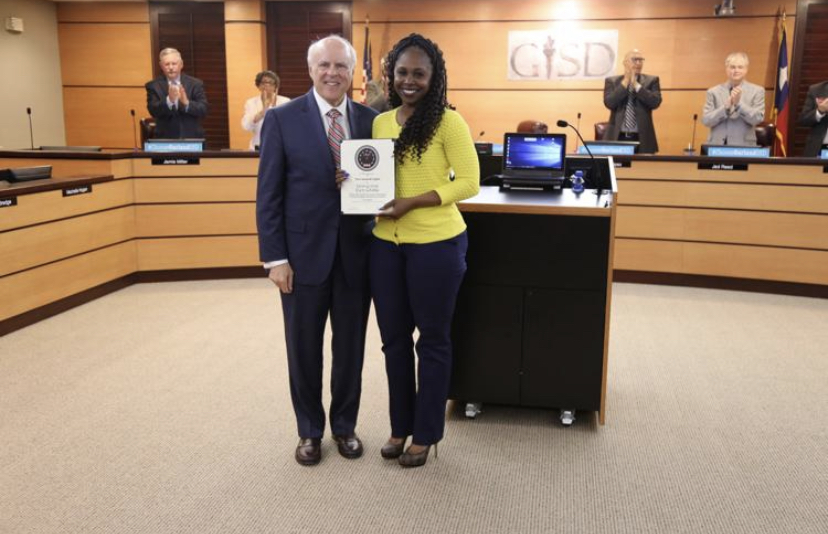
Knight’s rise to athletic coordinator happened relatively quickly. Within three years she became head track coach at Lakeview High School, then named athletic coordinator within a couple of years later. In 2018 she was honored with the district’s Going the Extra Mile or GEM Award, in part for her efforts to help ensure student athletes succeeded academically. She is a dedicated mentor to students and continues to support them and keep in touch as they move on, even attending many of their college competitions.
As Knight celebrates her tenth year on the Lakeview High School campus, she reflects on the importance of being a role model for the African American girls who see someone who looks like them navigate a high-level position. “It truly makes me very cognizant of how I move, how I present myself. I know that what I do today is showing them for one, representation, and two, that the work that you put in, or the path that you think you might start in doesn’t necessarily have to be your end all be all. You create a pathway for yourself.”
For Terrenee Knight that pathway was made possible in part by an education at Southwestern. “The support network that Southwestern provides is truly more expansive than words can describe. And it’s truly appreciated,” she says.
















